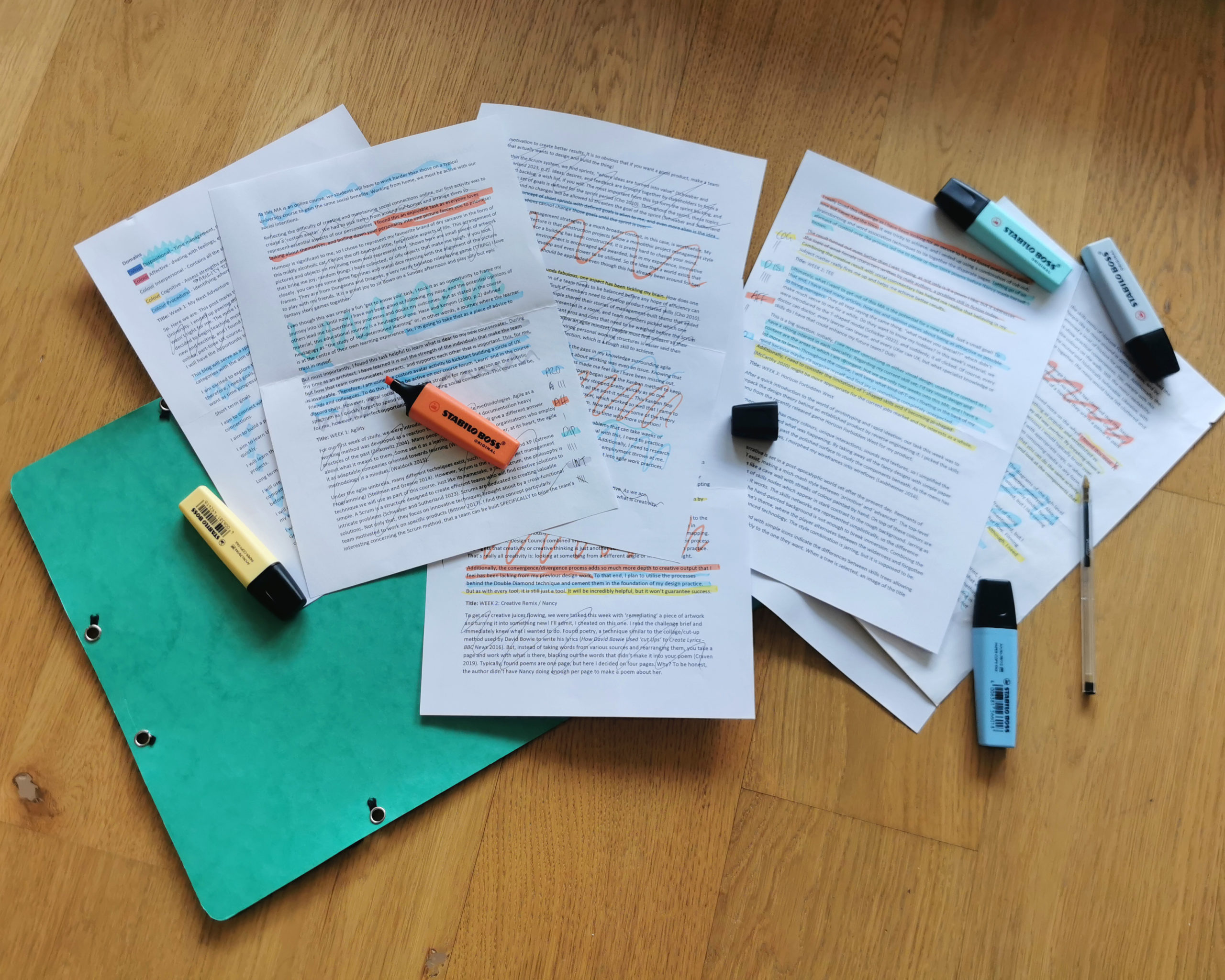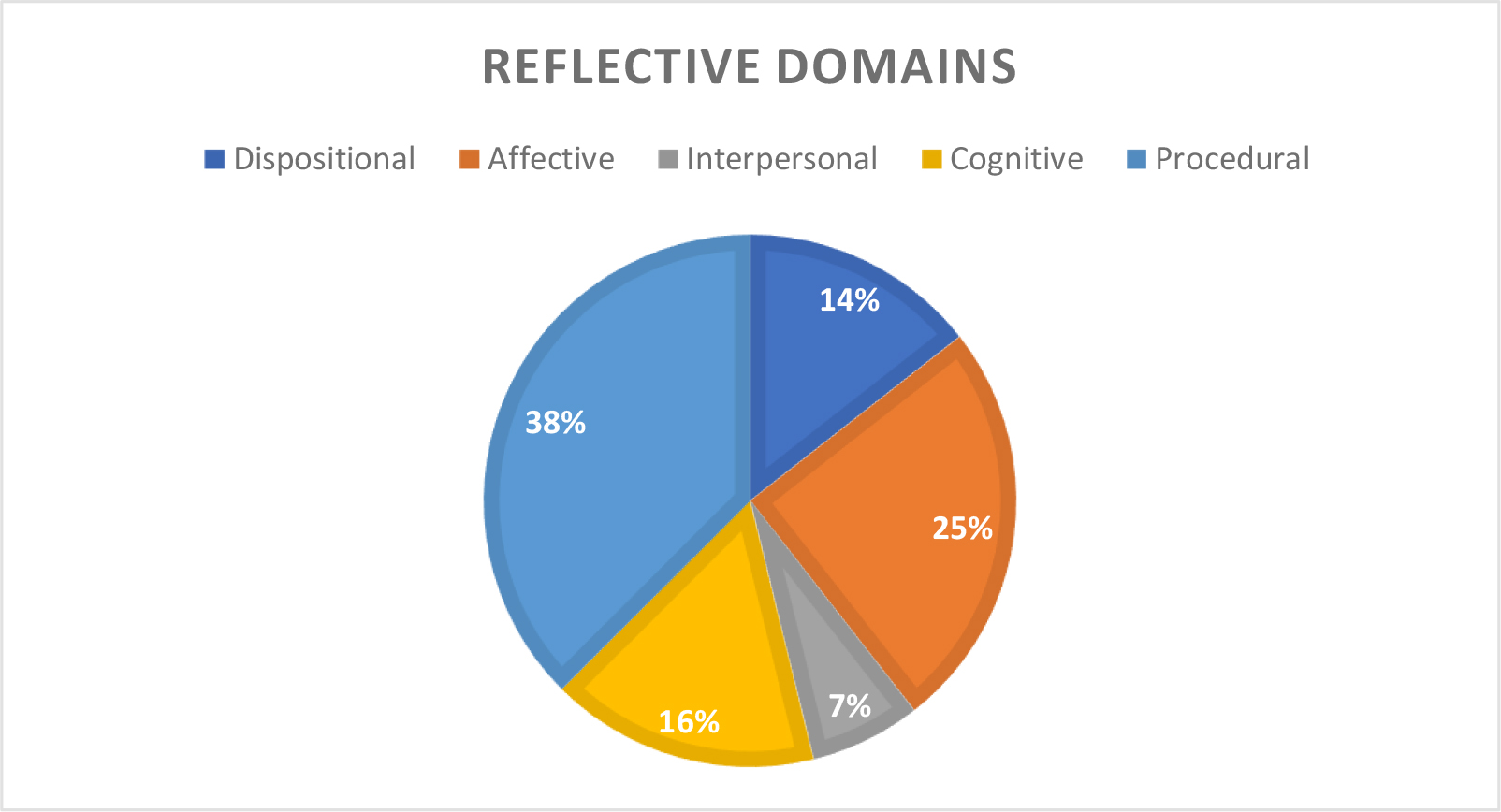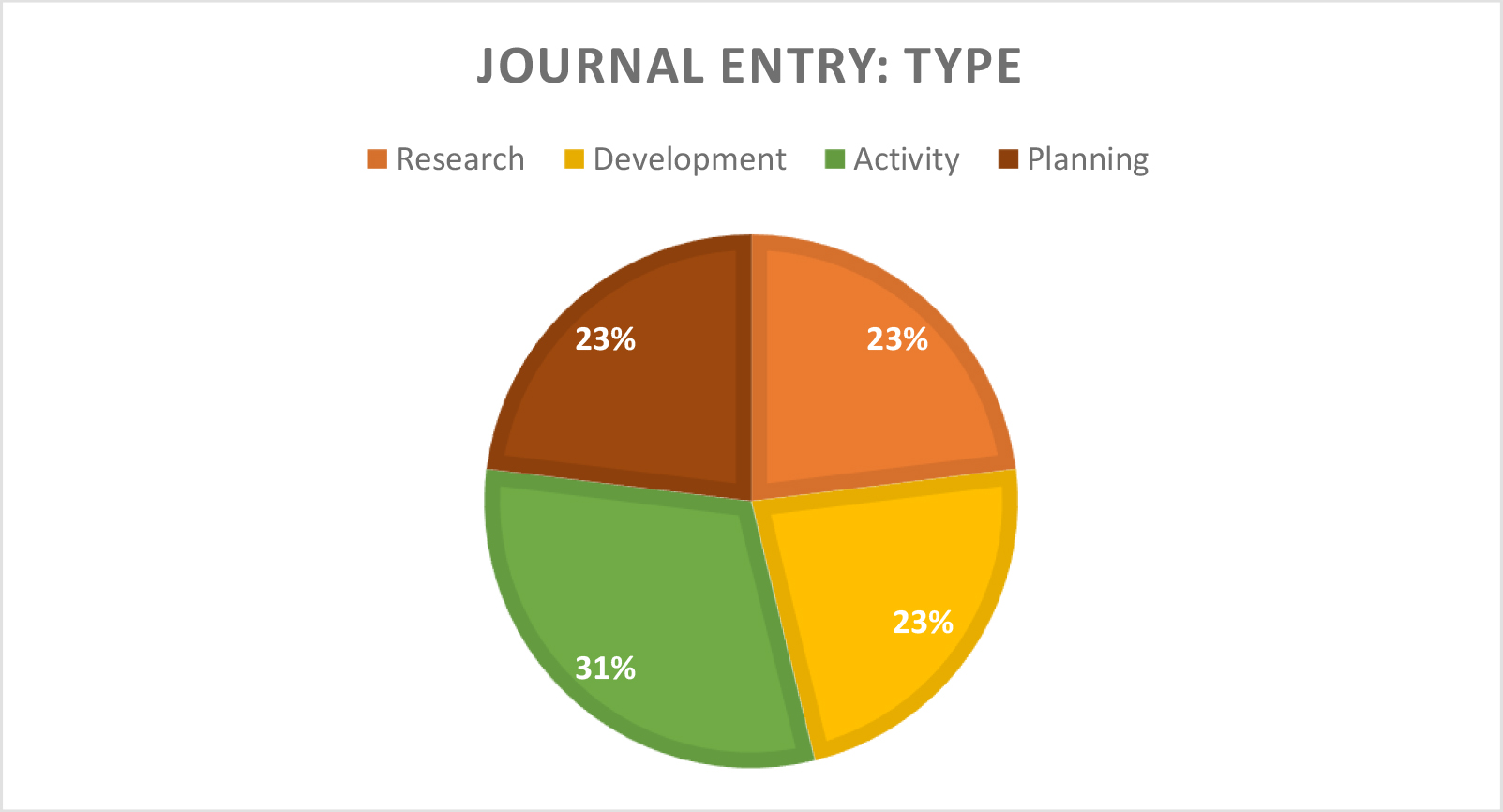
My analytical method was quick, messy, and worked like a charm
Reflective writing is not a new practice for me, and I have been revelling in the opportunity to flex those muscles over the last few weeks. With week five’s learning material, however, we began learning about the theory behind the practice.
I won’t dive into the theory in this post but will instead explore how I applied that theory to my previous writing from this module. This task will ensure I engage with all reflective domains to further a meaningful, holistic, deliberate practice (Ericsson et al. 1993). The five key reflective domains which I will be discussing, outlined by Parker, are:
Dispositional – Time management, motivation, discipline and general behaviour
Affective – dealing with feelings, experiences and emotions
Interpersonal – Contains all the skills to interact effectively with others
Cognitive – Assess strengths and weaknesses in your approach to learning, going beyond gut feeling
Procedural – identifying where improvements are needed (2023)
I quickly analysed my posts with highlighters and a tally system and pulled the data into the following pie chart. It was tricky for me to identify which parts of my writing fit into the different domains, so my categorisation, for now, is loose until I have a better handle on them and their differences.

Pie chart created in Excel
The results are not surprising; procedural reflection is what we all navigate towards naturally, as it is the easiest to measure and think about. It is often apparent when we could improve or when we have done well. I am surprised, however, by how often I reflect within the affective domain, as my assumption was it would be even with the others.
But using some cognitive reflection, at the beginning of this module, we were introduced to Gibbs’ Reflective Cycle (The University of Edinburgh 2020), which specifies discussing your feelings during reflection. As I have been writing, I have aimed to use the Gibbs structure, and as a result, I have always made space to discuss emotions more often than I would have otherwise.
However, the low occurrence of the interpersonal domain within my writing is not surprising. So far, all our work has been individual, and as I mentioned in a previous post, this is an area I am working on. Although, as part of the next rapid ideation session, I will be working in a small group, giving me ample opportunity to reflect and work on my interpersonal skills.
To address the lopsidedness in my reflective practice, I have updated my blog post templates and tagging systems to include a section on each domain. With these reminders in place, it will help me consider my reflective practice holistically and provide a reminder when I might otherwise forget.
In addition to the reflective analysis, I quickly checked the categories of my journal entries. The types were suggested to us as a good structure in week one: development, activity, planning and research, and each category has a different focus (Falmouth University 2020). So far, I have written evenly over the various types with a slight emphasis on writing about our weekly activities. I have a similar template system for post categories, so I will continue using this approach when planning my writing, as it works very well with my thinking and learning.

Pie chart created in Excel
I found it quite tricky to manage this task with our two-week design sprint, but going into the activity, I already knew that would be the case. Knowing the tighter deadlines this week allowed me to adjust my study plan and create a system that allowed me to break the task down into smaller chunks which I could tackle during my lunchtime at work.
Overall, I am the most satisfied with my organisational systems from this week’s tasks. It was the first time we had several challenges running concurrently (and managing a full-time job), so I am pleased I still completed the weekly activities on time. It is also great to see that my working methods are agile enough to deal with all the situations thrown at us so far.
References
ERICSSON, K. Anders, Ralf T. KRAMPE and Clemens TESCH-RÖMER. 1993. ‘The Role of Deliberate Practice in the Acquisition of Expert Performance’. Psychological Review 100, 363–406.
FALMOUTH UNIVERSITY. 2020. ‘Week 1: Journal System Setup: GDO710 Development Practice S2 (22/23)’ [Learn]. [online]. Available at: https://learn.falmouth.ac.uk/courses/483/pages/week-1-journal-system-setup?module_item_id=29765 [accessed 23 Feb 2023].
PARKER, Alcwyn. 2023. ‘Holistic Reflection: The Five Key Skill Domains’ [Online Lecture]. Available at: https://learn.falmouth.ac.uk/courses/483/pages/week-5-the-five-reflective-domains?module_item_id=29801 [accessed 23 Feb 2023].
THE UNIVERSITY OF EDINBURGH. 2020. ‘Gibbs’ Reflective Cycle’. The University of Edinburgh [online]. Available at: https://www.ed.ac.uk/reflection/reflectors-toolkit/reflecting-on-experience/gibbs-reflective-cycle [accessed 23 Feb 2023].
German vocabulary of the week
Personal reflection – Persönliche Überlegungen

Seems like your journal entries are pretty well-rounded compared to my own, Hannah! I think it’s interesting that the Gibbs’ Reflective Cycle has helped you reflect at a more emotional level — this category was one I was missing so I might look into further employing the Gibbs’ framework in the future.
I also had difficulty identifying and categorising my journal entries — but hope the process will become more clear over the next weeks.